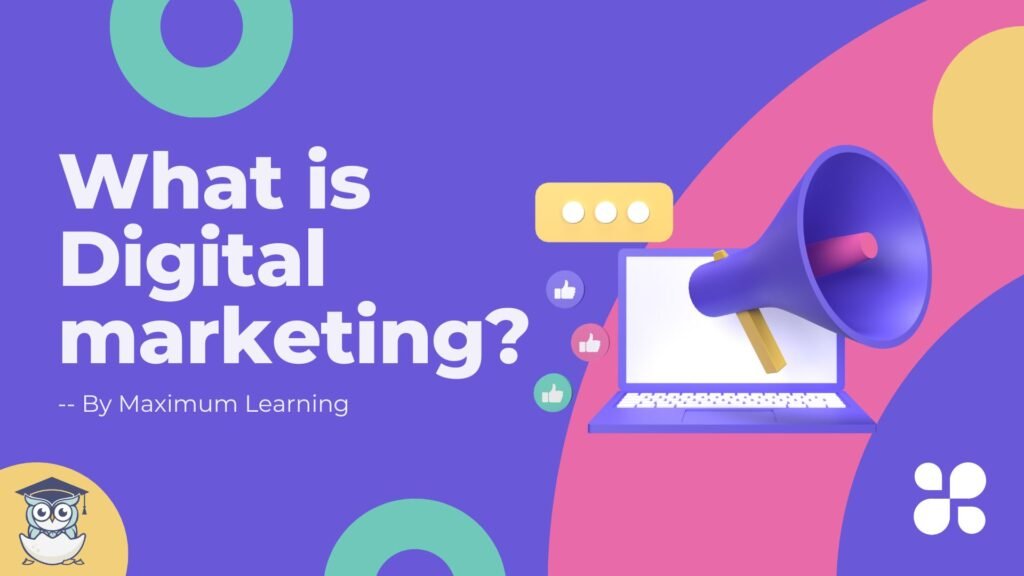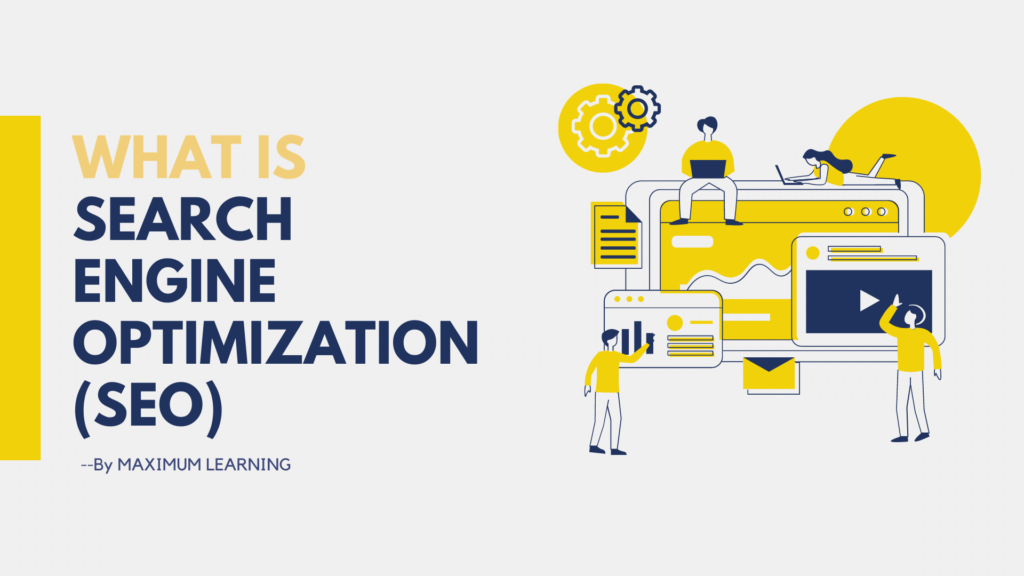In an era where information flows abundantly through the digital veins of the internet, seeking health advice has become a simple click away. Blogs and online articles serve as virtual encyclopedias, offering insights, tips, and solutions for various health concerns. While the internet undoubtedly holds a wealth of valuable information, it’s essential to navigate this sea of knowledge with caution. In this blog, we shed light on the potential pitfalls of solely relying on internet health advice, the impact on mental well-being, and the responsibility of health bloggers in disseminating accurate information.
The Internet’s Health Quandary:
For many, the internet serves as a virtual health encyclopedia, a readily available guide to understanding symptoms, seeking remedies, and deciphering medical jargon. While this accessibility is a boon, it comes with a caveat – not everything online is a substitute for professional medical advice. Relying solely on internet-sourced information can lead to confusion, self-diagnosis, and even unnecessary anxiety. It’s essential to approach online health content with a discerning eye and a healthy dose of skepticism.
Relying solely on internet-sourced health information can have several potential pitfalls. First and foremost, the lack of oversight and quality control means that not all online sources are trustworthy or evidence-based. Misinformation, outdated advice, and unsubstantiated claims can proliferate, leading users astray and potentially exacerbating health issues. Additionally, the sheer volume of available information can be overwhelming, making it challenging for users to discern credible sources from dubious ones.
Furthermore, self-diagnosis based on internet research can be unreliable and even dangerous. Symptoms may overlap across different medical conditions, leading individuals to misinterpret their own health status or overlook serious underlying issues. This can result in delays in seeking appropriate medical care or unnecessary anxiety over minor ailments. Moreover, attempting to self-treat based on internet advice can lead to ineffective or harmful interventions, as remedies may not be tailored to individual circumstances or medical history.
To navigate the internet’s health quandary effectively, individuals must approach online health content with a discerning eye and a healthy dose of skepticism. It’s essential to verify information from multiple reputable sources, such as peer-reviewed journals, medical professionals, and recognized health organizations. Additionally, consulting a healthcare provider for personalized advice and guidance is crucial, particularly for diagnosing medical conditions, developing treatment plans, and addressing specific health concerns.
Ultimately, while the internet can be a valuable resource for health information, it should complement rather than replace professional medical advice and care. By exercising caution, critical thinking, and reliance on trusted sources, individuals can make informed decisions about their health and well-being in the digital age.
The Dangers of Dr. Google:
In the age of Dr. Google, it’s common for individuals to turn to the internet for health-related queries. However, blind trust in online content can lead to a plethora of issues. Misinformation, conflicting advice, and self-diagnoses can give rise to unnecessary anxiety and stress. When individuals perceive every online source as infallible, they may begin to doubt professional medical opinions, fostering a breeding ground for mental health concerns.
One of the most significant risks associated with consulting Dr. Google is the prevalence of misinformation. Anyone can publish content online, regardless of their qualifications or expertise, leading to the proliferation of inaccurate or misleading information. Conflicting advice and unreliable sources can confuse individuals, making it difficult to discern credible information from falsehoods.
Moreover, the practice of self-diagnosis based on internet research can be problematic. Symptoms are often nonspecific and can overlap across various medical conditions, leading individuals to misinterpret their own health issues or jump to conclusions. This can result in unnecessary anxiety, stress, and even unnecessary treatments or interventions.
Blind trust in online content can also erode trust in professional medical opinions. When individuals perceive every online source as infallible, they may begin to question the expertise of healthcare professionals and dismiss their recommendations. This can create a dangerous cycle where individuals forego essential medical care or delay seeking treatment, leading to worsened health outcomes.

Additionally, constant exposure to health-related information online can contribute to heightened anxiety and stress levels. The abundance of alarming articles, sensationalized headlines, and anecdotal stories can fuel health-related fears and hypochondria, leading to a state of perpetual worry and distress.
To mitigate the dangers of Dr. Google, individuals must approach online health information with caution and critical thinking. It’s essential to verify information from reputable sources, consult multiple perspectives, and consider the credentials of the authors or publishers. Furthermore, seeking guidance from qualified healthcare professionals is crucial for accurate diagnosis, treatment, and management of health conditions.
Ultimately, while the Internet can be a valuable tool for health education and empowerment, it should not replace professional medical advice and care. By being discerning consumers of online health information and prioritizing evidence-based practices, individuals can safeguard their physical and mental well-being in the digital age.
The Anxiety Epidemic:
For those who exclusively rely on internet information, the journey from symptom search to self-diagnosis can quickly escalate into a mental health crisis. Anxiety, fueled by the fear of the unknown, overthinking, and constant health-related searches, can take a toll on overall well-being. It’s crucial to acknowledge the real impact that unrestricted internet health exploration can have on mental health.
Anxiety thrives on uncertainty, and the vast amount of information available online can fuel this uncertainty. Constant health-related searches can lead to a phenomenon known as “cyberchondria,” where individuals become consumed by fears of potential illnesses or health conditions. This incessant searching and overthinking can exacerbate anxiety levels, leading to a heightened state of worry and distress.
Furthermore, the nature of online information can contribute to feelings of anxiety. Sensationalized headlines, alarming anecdotes, and conflicting advice can amplify fears and trigger anxiety responses. The fear of the unknown, coupled with the lack of context and expertise in online content, can magnify health-related concerns and contribute to a sense of helplessness.
The relentless cycle of searching for answers online can also disrupt daily functioning and impact overall well-being. Constantly dwelling on health concerns and symptoms can detract from other aspects of life, leading to increased stress, difficulty concentrating, and disrupted sleep patterns. In severe cases, individuals may experience panic attacks, avoidance behaviors, or obsessive-compulsive tendencies related to their health anxieties.
It’s crucial to acknowledge the real impact that unrestricted internet health exploration can have on mental health. While seeking information online can be empowering, it’s essential to do so in moderation and with a critical eye. Setting boundaries around internet use, seeking reputable sources of information, and practicing self-care techniques to manage anxiety are essential strategies for safeguarding mental well-being in the digital age.
Additionally, seeking support from mental health professionals can be beneficial for individuals struggling with health-related anxiety. Therapies such as cognitive-behavioral therapy (CBT) can help individuals challenge irrational beliefs, develop coping strategies, and regain a sense of control over their thoughts and behaviors.
Tips for Writing Responsible Health Blogs:
Now, let’s shift our focus to those contributing to the vast pool of health-related content. Here are some essential tips for health bloggers:
Source Credibility:
Ensure that the information in your health blog is sourced from reputable, peer-reviewed journals, medical professionals, or recognized health organizations.
Reputable peer-reviewed journals: Peer-reviewed journals are considered the gold standard in scientific publishing. Look for information from respected journals in the field of medicine, healthcare, or related disciplines. Articles published in peer-reviewed journals undergo rigorous evaluation by experts in the field to ensure accuracy and validity.
Medical professionals: Seek input from qualified medical professionals such as doctors, nurses, and specialists in the relevant field. Direct quotes or insights from healthcare professionals add credibility to your content and provide expert perspectives on health topics.
Recognized health organizations: Consult information from established health organizations and institutions such as the World Health Organization (WHO), Centers for Disease Control and Prevention (CDC), National Institutes of Health (NIH), and Mayo Clinic. These organizations conduct research, provide evidence-based guidelines, and disseminate reliable health information to the public.
Academic institutions: Universities and academic medical centers often conduct research and publish findings on various health issues. Look for content from reputable academic institutions with expertise in the subject matter.
Trustworthy websites: While there are many health websites available online, it’s essential to prioritize those affiliated with reputable organizations, medical institutions, or government agencies. Websites ending in .gov, .edu, or .org are often more reliable sources of health information compared to commercial sites.
Avoidance of bias: Be mindful of potential biases in the sources you choose. Select information that is objective, evidence-based, and free from conflicts of interest. Avoid sources that promote unfounded claims, pseudoscience, or alternative therapies lacking scientific support.
Balance and Context:
Present a balanced view of health topics, providing context and avoiding sensationalism. Clearly communicate the limitations of the information presented.
Present multiple perspectives: Acknowledge that health topics can be complex and multifaceted. Presenting various viewpoints allows readers to consider different perspectives and make informed decisions. For example, if discussing the benefits and risks of a particular treatment or lifestyle choice, provide information from both proponents and critics to give readers a comprehensive understanding of the topic.
Provide context: Contextualize the information you present by discussing relevant background information, historical context, and scientific evidence. Help readers understand the broader context of the health topic and how it fits into the larger healthcare landscape. Providing context enables readers to better interpret the information and make educated decisions.
Highlight limitations: Be transparent about the limitations of the information presented. No single study or source of information is definitive, and it’s essential to communicate the uncertainty and potential biases inherent in research findings. Discuss study limitations, such as sample size, study design, and potential confounding factors, to help readers critically evaluate the evidence.
Avoid sensationalism: Resist the temptation to use sensational language or exaggerated claims to grab readers’ attention. Instead, focus on presenting information in a clear, objective manner. Sensationalism can distort the facts and mislead readers, undermining the credibility of your blog. Stick to evidence-based information and strive to maintain a balanced and measured tone throughout your content.
Encourage critical thinking: Empower readers to think critically about the information presented. Encourage them to question assumptions, consider alternative viewpoints, and seek out additional sources of information. Providing resources for further reading or encouraging readers to consult healthcare professionals can help them make well-informed decisions about their health.
Transparent Credentials:
Transparency regarding credentials or background in health-related fields is essential for building trust with your audience. When creating content for a health-related blog, it’s important to clearly state your qualifications, expertise, and relevant experience, if applicable.
For example, if you have a degree or certification in a healthcare-related field such as medicine, nursing, nutrition, or public health, mention it prominently in your bio or author profile. Highlight any specialized training, areas of expertise, or professional affiliations that demonstrate your credibility in the subject matter.
If you don’t have formal credentials in a health-related field but have relevant experience or expertise, such as personal research, lived experience with a health condition, or extensive self-study, it’s still important to be transparent about your background. Share your motivations for writing about health topics, your sources of information, and any personal biases or limitations that may influence your perspective.
By being transparent about your credentials or background, you demonstrate honesty and integrity to your audience. This transparency helps readers understand the context and credibility of the information you provide, allowing them to make informed decisions about the content they consume. Additionally, it fosters trust and credibility, which are essential for building a loyal audience in the competitive landscape of health-related blogging.
Avoid Medical Advice:
It’s essential to refrain from giving specific medical advice in your health-related content. While providing general information and insights can be valuable, offering personalized medical advice without proper evaluation and examination of an individual’s medical history can be misleading and potentially harmful.
Instead, encourage your readers to consult healthcare professionals for personalized guidance tailored to their specific needs and circumstances. Emphasize the importance of seeking advice from qualified medical professionals such as doctors, nurses, or specialists who can provide accurate diagnoses, treatment recommendations, and ongoing care.
You can also provide resources and guidance on how readers can effectively communicate with their healthcare providers, ask questions, and advocate for their own health needs. Encourage open dialogue and collaboration between patients and healthcare professionals to ensure the best possible outcomes.
By refraining from giving specific medical advice and promoting the importance of consulting healthcare professionals, you help empower your readers to make informed decisions about their health while prioritizing their safety and well-being.
Fact-Check and Update:
Regular fact-checking and updating of content are essential practices for maintaining the accuracy and relevance of your health-related blog. Here’s how you can incorporate these strategies into your content management process:
Establish a schedule: Set aside dedicated time to review and fact-check your blog content on a regular basis. Depending on the frequency of your posts and the nature of the topics you cover, this could be weekly, monthly, or quarterly.
Stay informed: Stay up-to-date with the latest developments, guidelines, and research in the field of healthcare and medicine. Subscribe to reputable medical journals, follow trusted health organizations and experts on social media, and participate in continuing education opportunities to stay informed about emerging trends and advancements.
Verify sources: Double-check the sources of information cited in your blog posts to ensure they are credible and up-to-date. Look for information from reputable sources such as peer-reviewed journals, government agencies, and established health organizations.
Cross-reference information: When presenting facts or statistics, cross-reference them with multiple sources to confirm their accuracy. Be cautious of relying on a single source, and seek confirmation from independent sources whenever possible.
Update outdated content: Review older blog posts regularly to identify any outdated information or recommendations. Update the content as needed to reflect the most current knowledge and guidelines. Consider adding a note at the beginning or end of the post indicating the date of the last update.
Address corrections promptly: If errors or inaccuracies are identified in your content, address them promptly and transparently. Correct the information in the post, and acknowledge the error with a brief note explaining the correction. This demonstrates accountability and commitment to accuracy.
Engage with feedback: Encourage readers to provide feedback and corrections if they identify any inaccuracies in your content. Engage with their feedback respectfully and consider incorporating their suggestions into future updates.

Encourage Critical Thinking:
Encouraging critical thinking among your readers is vital for promoting informed decision-making and empowering them to navigate the vast amount of health-related information available online. Here are some strategies to foster a mindset of critical thinking:
Emphasize questioning: Encourage readers to question the information they encounter, including your own content. Encourage them to ask who created the content, what evidence supports the claims made, and whether there are alternative perspectives or interpretations to consider.
Provide context: Help readers understand the context surrounding health-related information, including the limitations and uncertainties inherent in scientific research. Provide background information, discuss conflicting evidence, and highlight areas of ongoing debate to give readers a more nuanced understanding of the topic.
Teach evaluation skills: Equip readers with the skills they need to evaluate the credibility and reliability of sources. Teach them how to assess the author’s expertise, the publication’s reputation, and the quality of evidence presented. Encourage them to look for information from reputable sources and to be skeptical of sensationalized or biased content.
Encourage seeking multiple perspectives: Encourage readers to seek out information from a variety of sources and perspectives to gain a more comprehensive understanding of a topic. Expose them to diverse viewpoints and encourage them to consider different interpretations and opinions before forming their own conclusions.
Promote skepticism: Encourage a healthy skepticism towards health-related claims and recommendations, particularly those that promise quick fixes or miracle cures. Remind readers that if something sounds too good to be true, it probably is, and encourage them to scrutinize such claims carefully.
Provide resources: Offer resources and tools to help readers develop their critical thinking skills, such as fact-checking websites, critical appraisal guides, and educational materials on logical fallacies and cognitive biases. Empower them to become discerning consumers of health information.
Lead by example: Model critical thinking in your own content by providing well-reasoned arguments, citing credible sources, and acknowledging uncertainties and limitations. Encourage open dialogue and debate among your readers, fostering a community of critical thinkers who can learn from each other.
Sensitive Content Warning:
If your content discusses sensitive health issues, include a warning and provide resources for mental health support.
As we navigate the vast landscape of online health information, let’s be mindful of the impact it can have on mental well-being. Responsible blogging is not just a duty; it’s a commitment to the collective health of our readers. By approaching health topics with caution, credibility, and empathy, we contribute to a digital environment where individuals can access accurate information without compromising their mental health.
Remember, the internet is a powerful tool, but its potential for good comes with the responsibility to wield it wisely. Let’s prioritize the mental well-being of our audience and contribute to a digital health space that promotes understanding, knowledge, and, above all, holistic well-being.




